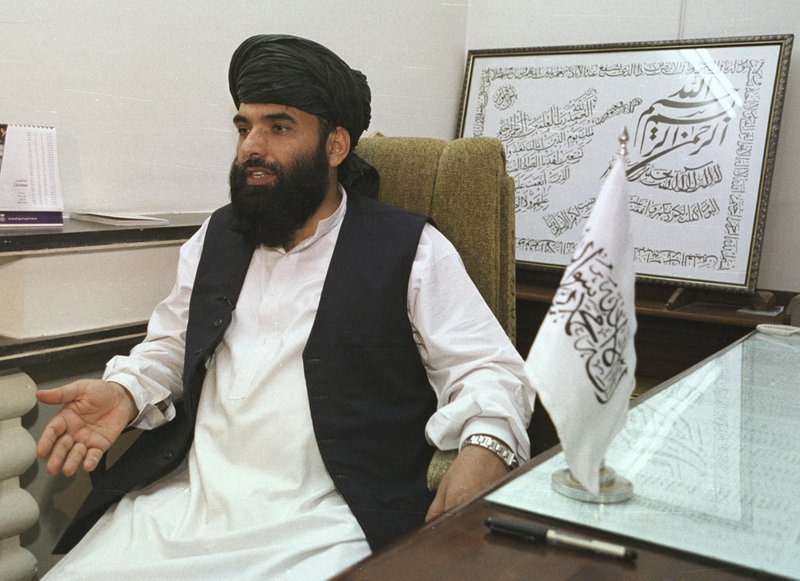ISLAMABAD -- The Taliban on Saturday said the gap is narrowing in talks with Washington's special peace envoy over a timetable for the withdrawal of U.S. troops from Afghanistan.
Taliban spokesman Suhail Shaheen said both sides have offered new proposals for drawing down U.S. and NATO forces.
"There are proposals to lower the gap between the two sides, but [it] still needs negotiation to reach a final agreement," he said.
Shaheen spoke from Doha, Qatar, where the two sides are continuing to meet. The insurgent movement maintains a political office in Qatar.
Other Taliban officials familiar with the negotiations had earlier said the U.S. was seeking about 18 months to withdraw its estimated 14,000 troops from Afghanistan, while the Taliban wanted it done in six months. The officials spoke on condition of anonymity because they were not authorized to speak to the media.
It remains unknown what new proposals either side has put on the table.
Talks between the U.S. and Taliban, which began last year with the appointment of Washington's peace envoy, Zalmay Khalilzad, have focused on a timetable for a U.S. withdrawal as well as Taliban guarantees that Afghanistan will not be used as a staging arena for global terrorist attacks.
The U.S. also wants guarantees that the Taliban won't harbor terrorists and that the insurgent group will help in the fight against an Islamic State affiliate that has taken root mostly in eastern Afghanistan.
The Taliban have publicly assailed the Islamic State affiliate, known as the Islamic State in Khorasan Province, and have waged bitter battles against the group's followers. The fights are most often in eastern Nangarhar province but also take place in the north of Afghanistan, where an affiliate known as the Islamic Movement of Uzbekistan has recruited more Afghans to the Islamic State.
Despite the peace talks, the Taliban continue to attack Afghanistan's beleaguered military, causing a high number of casualties in an almost 18-year war that is America's longest military engagement.
In one of the most recent attacks, Taliban insurgents killed seven Afghan policemen after storming security checkpoints late Friday in western Badghis province.
Mohammad Naser Nazari, a provincial councilman, said Saturday that three members of the security forces were wounded during the attack in Qadis district.
The Taliban did not comment on the attack.
Meanwhile, the Afghan Defense Ministry said Saturday that 43 militants from the Islamic State, including foreign fighters, were killed in two separate coalition airstrikes during the night in coordination with Afghan forces. A statement said the airstrikes targeted the Islamic State in eastern Kunar province's Chapadara district and killed several Pakistani and Uzbek citizens.
And in eastern Ghazni province,dozens of people carried eight bodies to the governor's office in a protest Saturday, saying the dead were civilians killed during military operations.
The governor's spokesman, Arif Noori, confirmed that at least five civilians had been killed Friday night by Afghan and international forces, which were conducting operations against the Taliban in three areas in the province. Noori said 22 Taliban fighters were killed.
Taliban spokesman Zabihullah Mujahid denied reports that the group's fighters were killed. He said several civilians were killed or wounded during the operations by Afghan and coalition forces in Ghazni.
The Taliban refuse to stop fighting until U.S. and NATO troops withdraw. Taliban officials, who spoke on condition of anonymity, said Taliban commanders in the field are unlikely to accept a cease-fire while foreign troops are still in Afghanistan. They also fear that the U.S. would renege on the deal, and they say it would be difficult to restart the fighting once a cease-fire is declared.
An intra-Afghan dialogue that was to be held in Doha last month collapsed after both sides failed to agree on participants. Khalilzad has urged both sides to find a middle ground to start talks.
A Section on 05/05/2019
